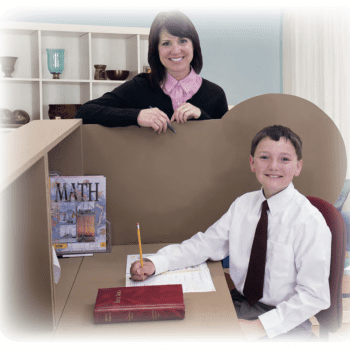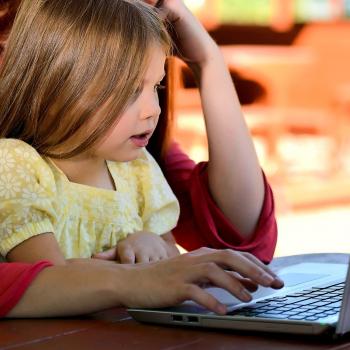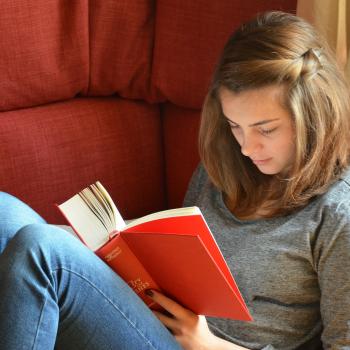I’ve been thinking more about socialization, and I think I’ve reached a point of clarity. Ever since writing my first post on homeschooling and socialization several years ago, many people who attended public school have told me that they, too, had struggles with socialization, and others have insisted that there are homeschoolers who are well socialized in diverse circles and end up with no socialization problems at all. The issue is obviously more complicated than well-socialized public schoolers versus unsocialized homeschoolers (a dichotomy I have never endorsed, to be clear). So let me see if I can pull my thoughts on this topic together here.
For the purpose of this post, I’m going to address three aspects of socialization:
- Creating a shared common culture
- Learning to interact with peers
- Learning to deal with people of other beliefs
For more on what all constitutes socialization, take a look at the wikipedia page on the topic. As a child I thought socialization just meant having friends, but it’s much more complicated than that.
I, personally, have suffered socialization challenges. I’ve written a lot about those problems over the past couple of years, and I think it’s perfectly fair to blame those problems (whether in part or in whole) on homeschooling—or to be more specific, on how I was homeschooled. And here we start to get to the meat of it.
I don’t think homeschooling automatically dooms a child to suffer socialization problems and I don’t think being in public school automatically grants a child good socialization. I would hazard a guess, though, that it takes less effort to end up well socialized attending public school than it does to end up well socialized being homeschooled. For one thing, institutional schooling is the normative experience, meaning that children in school become part of a loose common culture and shared background experience. For another thing, when children are in public school they’re constantly exposed to interaction with peers. Finally, while public schools vary in how homogeneous or diverse they are, children in public school will almost invariably be in contact with at least some variation in belief and background. In contrast, homeschool parents have to be very conscious and intentional in ensuring that their children have each of these things. Should parents of children in public school make an effort to guide their children’s social development rather than just assuming that sending them to public school will take care of it? Yes. But homeschool parents are going to have to do more.
I say this all knowing full well that many parents choose homeschooling specifically to remove their children from these very aspects of socialization. In other words, for them, removing their children from the regular socialization of the public schools is a feature, not a bug.
First, there are homeschool parents who don’t think this whole “common culture” thing is a good idea. That’s their right. But they have to recognize that if they consciously raise their children outside of any sort of common culture—away from TV or movies, fads and normal kid experiences—their children may grow up to feel like they’re forever on the outside. Some will probably enjoy feeling different, but others will hate it—and this is a risk these parents need to be aware they are taking.
Don’t tell me that children in public schools become mindless automatons who are slaves to a homogeneous common culture of fitting in while homeschooled children are freed from this pressure and able to be themselves. I understand these objections, I really do. However, I know too many people who attended public school, or are currently attending public school, to buy the idea that children there turn into mindless robots forever stuck copying each other. Having a common cultural background doesn’t mean the erasure of difference. Further, I do think children can have exposure to this common culture without attending public school. It simply means not keeping them from socializing with public schooled friends and letting them take part in normal kid experiences like everyone else.
Second, there are homeschool parents who don’t believe peer interaction is important. These parents generally say kids should grow up socializing with people of a variety of ages. I’m not concerned about those who grow up socializing with those of a variety of ages on top of having plenty of peer interaction. My concern is for those who grow up without sufficient peer interaction. Whether these homeschool parents like it or not, peer interaction really is important. Fortunately, most of those homeschool parents who devalue peer interaction and talk about the importance of their children socializing with all age groups don’t actively seek to limit their children’s peer interaction (though they may not seek to broaden it).
Don’t tell me that the vast majority of homeschooled kids have tons of friends and take part in lots of co-ops and activities, and that I am buying into a stereotype of homeschooling and incorrectly assuming that homeschooled kids just sit at the kitchen table alone all day. I know that’s a stereotype. However, regardless of what most homeschoolers do, there nevertheless are homeschool kids who grow up with little peer interaction to speak of. I know some of them today, including young adults who only left their homes once a week as homeschooled teens. But beyond that, my parents, too, would have said that I had lots of friends and was involved in lots of co-ops and activities. And to some extent that was true. However, my parents vastly overestimated the number of friends we children had. Things can appear different from a child’s perspective than from a parent’s.
Third, there are homeschool parents who don’t want their children exposed to people with different beliefs. My parents, who homeschooled for religious as well as educational reasons, often used a greenhouse analogy. They said homeschooling us was like raising plants in a greenhouse until they were strong enough and ready to be exposed to the harshness of the outside climate. They were therefore keeping us from those with different beliefs intentionally. Because of this, we only got together with those who were like-minded—meaning other conservative Christian homeschooling families. As a result, I didn’t know how to interact with people beyond this group. When I went off to college and was exposed to those who are different, it was painfully difficult. My parents always told us that we were to be “in the world but not of it,” but we were never in the world in the first place. Instead, we were in our own little Christian homeschool hothouse.
Don’t tell me that most homeschoolers have plenty of interaction with people with different beliefs. I don’t think we actually know that, because I don’t think we’re entirely sure what percentage of homeschoolers share my parents’ religious motivations for homeschooling. There are probably plenty of religious homeschoolers who think their children have exposure to different beliefs and lifestyles when in reality there’s a big difference between hosting an international student in order to evangelize him or volunteering at a soup kitchen on the one hand and having daily exposure with peers from a variety of backgrounds on the other hand. Also, even those homeschooling for secular reasons need to be conscious about exposing their children to those of different beliefs because it is easy to unconsciously limit one’s social circle to those with similar backgrounds.
I’m not anti-homeschooling. I think that there is a lot homeschool parents can do to help their children become well socialized. This may surprise some homeschoolers to hear, but homeschooling has become hip in the progressive circles I now run in, so I’m continually giving my “how to make sure your kids avoid socialization problems” speech to friends and acquaintances who are prospective homeschool parents. Among other things, I advise them to socialize their children beyond homeschool circles, to involve their children in at least some public school activities, and to listen to their children rather than just assuming that all is well. But most of all, I tell them that they need to be conscious and intentional about their children’s socialization.
Whether they realize it or not, homeschool parents take their children’s social development wholly into their own hands just as much as they take their children’s academic development wholly into their own hands. And they need to take that seriously. Perhaps you, reader, think this is obvious, but I grew up in homeschooling circles where the socialization question was laughed at. It wasn’t taken seriously, it was considered silly. And that, quite simply, is the problem. I have no problem with homeschool parents who take the socialization issue seriously. I do, however, have a lot of problems with homeschool parents who laugh at it.














